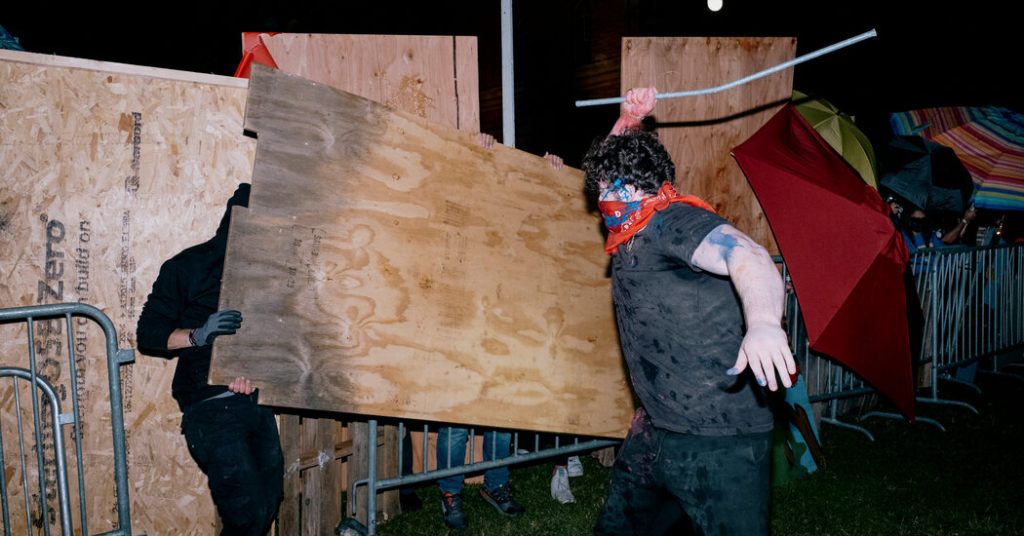Nearly two weeks after a pro-Palestinian encampment at the University of California, Los Angeles, was attacked by counterprotesters, university officials have yet to explain why security officers did not intervene or arrest those who attacked with metal rods, water bottles, and firecrackers. Witnesses described a chaotic night of violence on April 30, with calls to 911 and nonemergency lines going unanswered or being disconnected. Governor Gavin Newsom’s office eventually ordered California Highway Patrol officers and L.A.P.D. riot police to intervene, taking over an hour to quell the clashes.
Despite complaints of antisemitic incidents and violence, university officials initially resisted calling in outside police, only doing so as a last resort. On the night of the attack, counterprotesters gathered as rumors spread that the police would dismantle the pro-Palestinian encampment. Some counterprotesters arrived prepared for violence, with no clear organization or public callouts for the attack. The review found that contract security officers were caught off guard and unable to stop the violence.
Counterprotesters at the scene included individuals like Liel Asherian, who was seen destroying the encampment’s barricade, and Narek Palyan, known for his antisemitic remarks. Palyan claimed he went to the scene to prevent violence, while Asherian said he was provoked after being called a “dirty Jew” and pepper-sprayed. Journalists and observers like Anthony Cabassa noted the lack of police intervention as the situation escalated, with concerns over potential clashes and individuals wearing black clothes and ski masks.
Over 30 protesters were injured during the attack before the police eventually dispersed the crowd. Brian H. Levin, an expert on hate crimes, described the incident as a hate crime due to its religious and ethnic nature. The presence of individuals from previous protests and the waving of a Chabad-Lubavitch flag suggested some level of organization among the counterprotesters. However, some weapons used were described as spontaneous, and not all counterprotesters may have been part of an organized effort.
The next day, police removed the pro-Palestinian encampment and made over 200 arrests, mostly of student protesters. This led to criticism from protesters like Marie Salem, who questioned why the police arrested student protesters while not taking action against those who attacked them. The university has faced backlash for their handling of the situation, with questions lingering about the lack of response from security officers and law enforcement during the violent attack. The incident has raised concerns about the safety of students on campus and the response to protests involving contentious political and religious issues.


